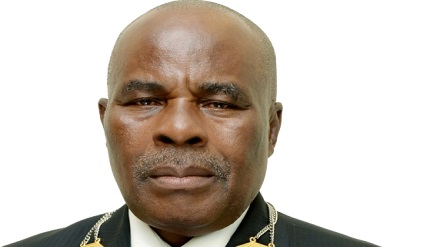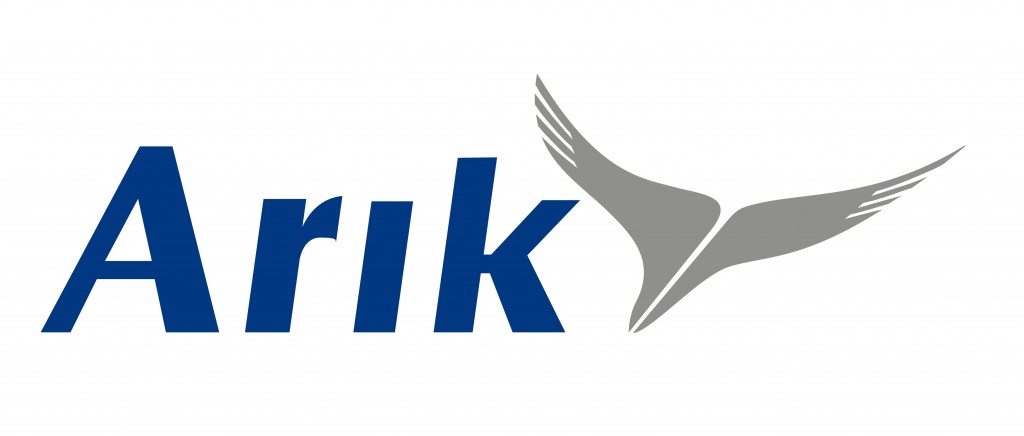News
NCS Bemoans Unproductive Consumption, Digital Exclusion

In reflections on 2014 and aspirations for 2015, the Nigeria Computer Society (NCS), has decried the persisting climate of unproductive consumption and digital exclusion in the Nigerian society.
According to NCS, although the IT Industry and Profession, in 2014, witnessed increased presence of IT in various sectors of the economy and society, however, a significant challenge is the persisting climate of unproductive consumption and digital exclusion in rural/urban, gender, among other trajectories.
In this light, Nigeria Computer Society (NCS), the nation’s foremost network of IT practitioners and stakeholders, said that it will be organizing its 12th international conference in July, 2015 based on the theme “Information Technology for Inclusive Development”.
Speaking on ssing IT to address Nigeria’s developmental challenges and strengthening the local IT sector, Professor David Adewumi, president of NCS, said these are strategic initiatives for global competitiveness.
He declared that 2015 is the year of Innovative and Inclusive Development, “in line with NCS’s advocacy role of ensuring that the nation receives the very best in processes, technologies and people”.
The telecommunications industry, he continued, still witnessed tremendous growth, while attracting investment in 2014. “However, while teledensity has improved significantly, quality of service, affordability, broadband penetration and last mile connectivity to the consumer are barriers that need to be addressed in 2015. The National Broadband Plan, if faithfully implemented, appears promising. The Nigerian Communications Commission (NCC) in particular has a major role to play and needs to speed up process of licensing of Infrastructure Companies (InfraCos) that will rollout broadband infrastructure nationwide. Also there must be bite in the Smart States initiative”.
To address some of the challenges, he said that a solid foundation in education is required to lead the IT revolution.
Adewumi said, “Just as in previous years, quite a few private, social and governmental initiatives in capacity building for IT were undertaken in 2014 to close the IT skills gap.
“However, human capital in IT is still massively below requirements, especially in research. Though there is improved access in education, there is an urgent need to ensure the entire education system embraces the 21st century knowledge culture that promotes and supports innovation.
NCS also gave Analyses on issues bugging the sector in Nigeria:
Online Sphere:
“The online sphere is home to considerable progress – online stores, business and social networks. Most outstanding in terms of investments attracted, jobs created and societal changes have been the e-payment/e-commerce landscape. In 2015, the space should be widened for existing players and new entrants. In addition, support issues as well as growth in mobile money uptake need to addressed.
Policies:
Policy and advocacy has been an area of growth through the efforts of professional and industry groups such as NCS, ATCON, ISPON, etc. NCS has been extremely fortunate to have members and partners who understand that advocacy efforts require resources.
They supported the IT Research workshops, Scholarship awards, the NCS 2014 conference and the 2014 National IT Merit Award (NITMA) and advocacy organization. In 2015 their continued support will further advance IT development in Nigeria.
The National Information Technology Development Agency (NITDA) and the Federal Ministry of Communication Technology (FMCT) has been coordinating national IT activities, and needs to keep providing visionary leadership in 2015. Multistakeholder policy review and development are essential to ensure policies are relevant and effective. FMCT and NITDA should also as a matter of urgency work with stakeholders to fast track the enactment of draft bills that will accelerate IT development in Nigeria.
Cyberthreats
Greater availability of computing and internet facilities (laptops, PCs, mobile and wireless devices) drives up cyber threats and increased the need for information security. Indeed because of the impact of cyberspace on the nation’s social and economic life, national security now encompasses the digital environment.
It is imperative that stakeholders such as NITDA, the Information Technology Systems and Security Professionals (ITSSP) group of NCS, security agencies and other Infosecurity entities work together to put information security strategies, policies, legislation and culture in place.
Improved overall cybersecurity awareness and capacity should be a national strategic goal in 2015. Better application of IT to fight terrorism and other national security threats, as well as the resolution of the National database issue should also be priority targets in 2015.
Recognition Of IT Professionals
Though quite a number of government agencies are now IT driven, it is disturbing to note that IT professionals are not actively involved at the board level in top level decision making and policy formulation/evaluation for most of such organizations.
The absence of IT professionals on the boards of MDAs questions the nation’s desire to be part of the 21st century. It is pertinent to note that the IT industry and profession was not represented at the 2014 National conference.
Even with improved access to IT and the Internet, activity in the IT space is largely foreign driven and dominated. The prevailing funding and patronage scenario puts the local industry at an extreme disadvantage. The birth of the IT innovation fund is a good start requiring sustainability.
Addressing local content development and IT research and development is a strategic imperative for 2015.
There has been appreciation of knowledge, merit and IT enabled innovation through the national honours platform for IT achievers –the annual National Information Technology Merit Awards (NITMA) and the NITDA e-governance awards held during the 2014 e-Nigeria conference. However, it is quite amazing that despite the manner in which IT is radically reshaping Nigerian society, the yearly composition of the National honours list does not recognize or appreciate the impact IT is making in the country.
Software Development
Software development, entrepreneurship and research initiatives addressing issues of funding and patronage should be encouraged and promoted. FMCT and NITDA must be commended for initiating some remarkable projects with such a focus.
Scaling up of promising interventions require strategic partnerships for faster, sustainable results. Nigerian content development in ICT, youth empowerment, digital gender mainstreaming and research are all top agenda items.
Critical to Nigeria’s digital future is support of innovative ideas in IT and harnessing the potential of Nigeria’s youth. However, in order to better serve the purpose and yield the benefit for which they were established, it is absolutely essential that FMCT, NITDA and NCC do more to support stakeholder driven initiatives in an inclusive manner.
A much needed, in fact overdue, area of critical focus for these government bodies is to work with stakeholders such as NCS to establish IT parks that will facilitate the achievement of identified priorities.
Mobile Technology
Mobile technology should be embraced at all levels to leverage on Nigeria’s improving teledensity for strong growth, financial and digital inclusion and to address Nigeria’s developmental issues.
The mainstreaming of mobile into development will reflect through the development of feasible and sustainable mobile initiatives relating to mobile money, mEducation, mHealth, mAgriculture, etc.
INEC And 2015 Elections
The Independent National Election Commission (INEC) employed information technologies to conduct to conduct governorship elections last year.
INEC is expected to continue in this vein in the conduct of national elections in 2015. It is imperative that the electoral body works more closely with stakeholders such as NCS to enhance IT adoption in election management and processes in Nigeria.
It is about building a prosperous, modern and democratic nation that meets the aspirations of the Nigerian people.
IT For National Development
IT development is a national matter and priority that has immense impact on the future of Nigeria.
The vision, leadership and commitment of key actors in the social, political and economic spheres are desired.
Though there are exceptions, the political class as a whole still appears to underestimate the potential of the IT sector. In view of upcoming elections in 2015, it is absolutely essential that Nigerians support and encourage credible politicians at all levels (local, state and national) that have an appreciation of the glaring need to incorporate and prioritize the role of the ICT sector in all sectors.
Those who must lead at this time must be those who are committed to ensuring the game changing nature and ability of IT is used to drive development.
News
UK Minister for Africa Visits Nigeria to Deepen Strategic Partnership

The United Kingdom’s Minister for Africa, Lord Collins of Highbury, has concluded a three-day visit to Nigeria, aimed at reinforcing the UK-Nigeria Strategic Partnership.

He reaffirmed the UK Government’s strong commitment to deepening trade and investment ties between the United Kingdom and Nigeria.
During his visit, Lord Collins met with senior Nigerian government officials, business leaders, civil society representatives and United Nations agencies.
These engagements underlined the UK’s long-term drive to support Nigeria’s prosperity and stability while deepening bilateral cooperation for transformative growth across our shared priorities.
A key highlight of the visit was Lord Collin’s bilateral meeting with Nigeria’s Minister of Foreign Affairs, Yusuf Tuggar, in which both parties reaffirmed their unwavering commitment to strengthening economic ties and promoting regional security. The Minister was joined by the UK’s Trade Envoy to Nigeria, Florence Eshalomi MP.
Lord Collins also met with Deputy Speaker of the House of Representatives, Hon. Benjamin Kalu, and discussions focused on opportunities to strengthen engagement between UK’s parliament and Nigeria’s National Assembly and the importance of furthering women’s participation in politics.
Speaking on his visit, the UK Government’s Minister for Africa, Lord Collins said: “Nigeria and the UK share a rich, ambitious relationship: one that is deeply rooted in respect.
“Our Strategic Partnership is at the forefront of this, and my visit has focused on how our countries can continue deepening our cooperation on key issues such as trade and investment to drive economic growth and deliver prosperity for us all.”
The Minister held discussions with United Nations representatives on the ongoing reform of the UN system, its implications for Nigeria and how the reform can effectively support those most in need, particularly in Northeast Nigeria, whilst also contributing to global humanitarian efforts.
Lord Collins also met with civil society leaders to discuss electoral integrity and governance reforms, reinforcing the UK’s commitment to democratic values and community empowerment.
He later visited Nigeria’s Anti-Kidnap Fusion Cell: a key security initiative supported by UK expertise through the National Crime Agency and the Integrated Security Fund, which plays a vital role in enhancing local safety and combating serious crime.
Also commenting on the visit, the British High Commissioner to Nigeria, Dr Richard Montgomery, said: “Driving growth is central to the UK’s foreign and development policy. Lord Collins’ visit to Nigeria underscores the UK’s unwavering commitment to deepening our shared prosperity through expanded trade and investment. We are proud to stand alongside Nigeria as it forges a resilient and dynamic economy.”
This visit underscores the UK’s enduring partnership with Nigeria – built on mutual respect, shared goals, and a vision for a prosperous future for both nations.
News
PalmPay Launches CSR Initiatives to Empower Women, Foster Financial Literacy in Northern Nigeria

In a strategic move to expand financial inclusion in Nigeria, leading mobile banking platform, PalmPay has launched a series of CSR programs across Kano and Kaduna. The CSR initiative named “Passing the Baton” represents the brand’s commitment to passing on knowledge and providing the resources individuals and businesses need to achieve financial independence and drive economic empowerment.

This initiative is a bold move by PalmPay to bridge the opportunity gap in the North by providing financial literacy training and micro-business branding support to 5,000 women-owned businesses in Kano and Kaduna. This strategic initiative reaffirms PalmPay’s commitment to inclusive development and economic empowerment, particularly in underserved regions.
“At PalmPay, we believe that real financial inclusion must be far reaching and cover the grassroots,” said Chika Nwosu, Managing Director of PalmPay. “Our new CSR program is focused on supporting gender equity by equipping women with the knowledge, tools, and visibility they need to thrive as entrepreneurs in their communities.”
Through this initiative, beneficiaries will receive free health insurance, hands-on training workshops, enhanced store branding to boost visibility, and branded merchandise to strengthen their business presence.
The initiative is part of PalmPay’s broader strategy to extend its innovative solutions, expand its footprint in Northern Nigeria, while building sustainable partnerships with local stakeholders for long-term impact.
In a show of support, His Royal Highness, the Emir of Kano, Dr. Muhammadu Sanusi II, has endorsed the initiative, calling on other stakeholders to join forces with PalmPay in ensuring the North benefits fully from the growing digital economy. PalmPay has received commendation from community stakeholders, as the initiative aims to serve as a model for similar projects across other northern states.
As PalmPay continues to scale across Nigeria, the company remains committed to bridging the financial inclusion gap and empowering underserved groups, particularly women and youth, through its innovative solutions and impact initiatives.
News
EFCC Witness Admits Writing Off Arik Air’s $2.3M Debt Amid N76Bn Fraud Trial



 Telecom2 days ago
Telecom2 days agoMTN Nigeria Invests ₦900Bn in 2025 to Boost Network Quality in Lagos & Abuja

 E-Business2 days ago
E-Business2 days agoFirm Reports a 48% Increase in Malicious Packages Threatening Software Supply Chains

 News2 days ago
News2 days agoEFCC Witness Admits Writing Off Arik Air’s $2.3M Debt Amid N76Bn Fraud Trial

 Telecom2 days ago
Telecom2 days agoMTN Nigeria Wins Award for Best Use of Data @MarkHack 4.0 Awards Night

 News2 days ago
News2 days agoSERAP Urges National Assembly to Reject Tinubu’s $24Bn Loan Request Over Debt Concerns

 E-Financial2 days ago
E-Financial2 days agoSenate Passes Harmonised Report on Tax Reform Bills

 Broadcasting2 days ago
Broadcasting2 days agoThe Rave Revolution: How Gen Z and EDM Are Rewriting Nigeria’s Nightlife

 News2 days ago
News2 days agoAnambra Shines in 2025 E-Governance Rankings, Setting National Standards




























